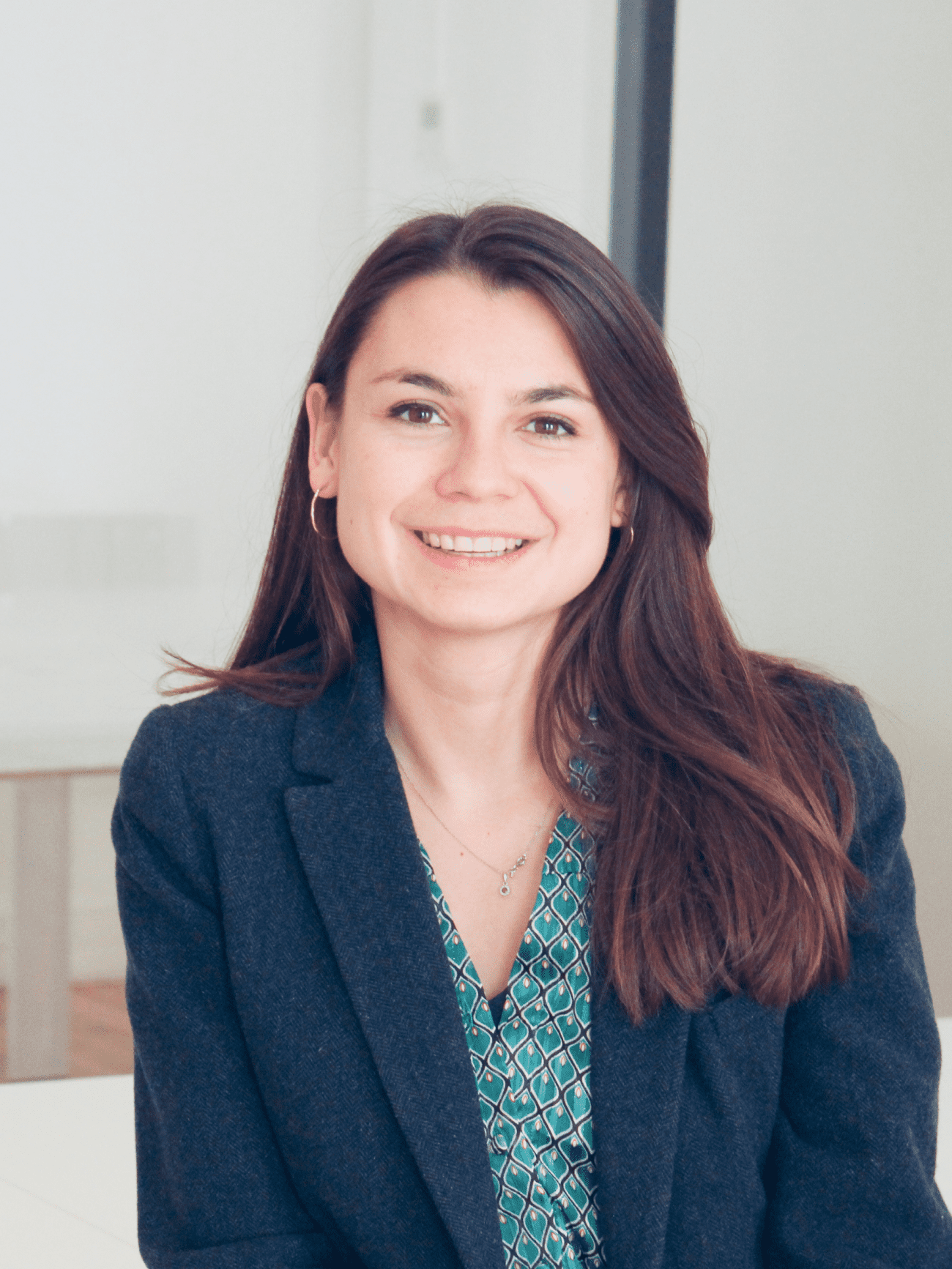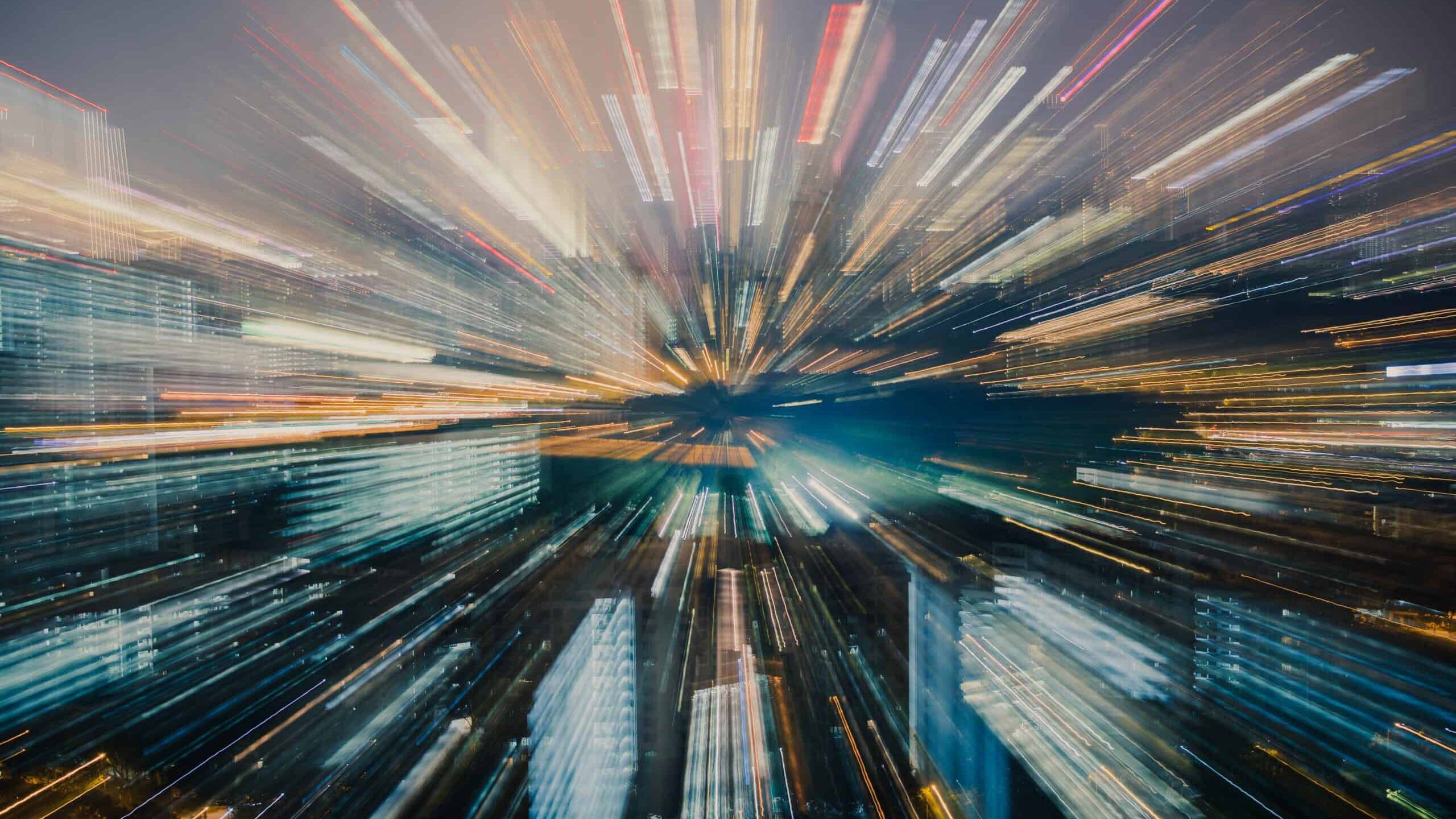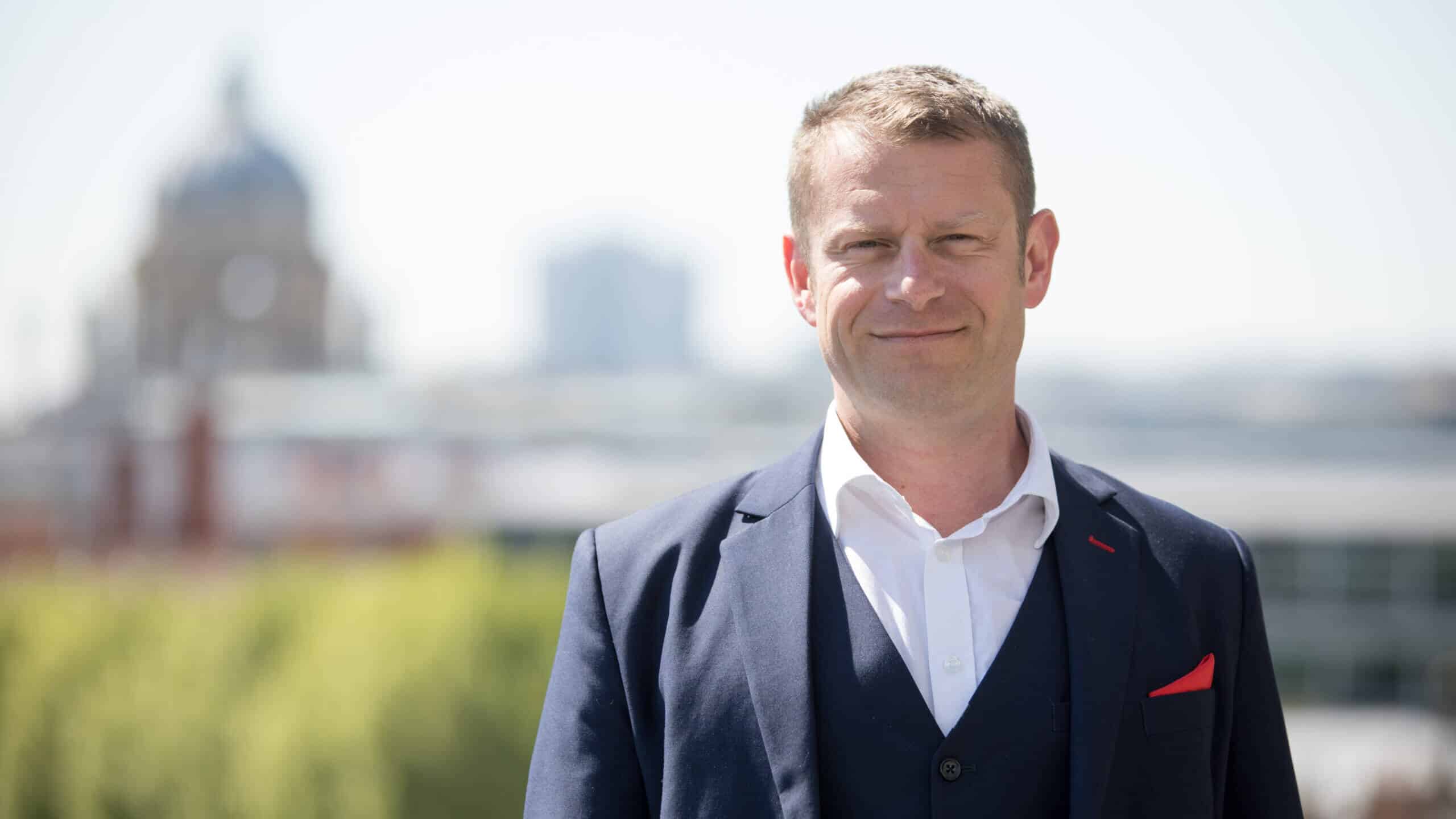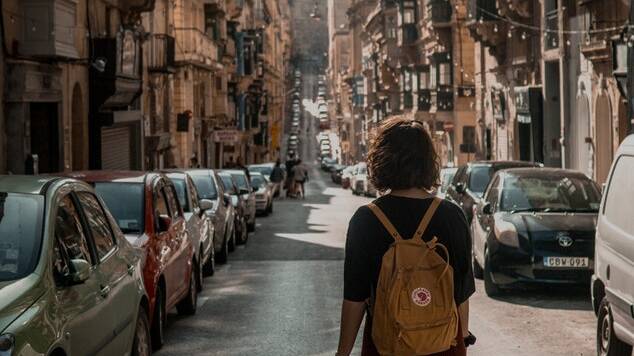Neobanks have revolutionized banking with their digital products, which have since become benchmarks for other banks. Now the market is ready for an environmental revolution in banking services, says Julia Ménayas, co-founder of Helios.

Co-founder, Helios
Julia Ménayas co-founded the ethical neobank Helios in 2020 together with Maeva Courtois. Before that, she worked as a consultant for BCG and as a venture capitalist for Alven, one of France’s leading early-stage VC funds. Julia graduated from HEC in Paris.
What were you doing before you co-founded Helios?
I studied corporate and public management at Sciences Po and HEC. I worked in strategy consulting at BCG, mostly on retail and health topics. I also worked on the investment side: first on the funds of funds team at BPI France – the French sovereign fund – and then at a VC. As a venture capitalist, I worked mainly on fintech and e-commerce investments.
How did you and your co-founder, Maeva Courtois, decide to establish an ethical bank?
Maeva and I have been friends for eight years. The idea came from her experience in the banking sector, where she was developing the ESG strategy at a fund called Exane, part of BNP Paribas group. She found that banks are talking about climate a lot, but not really taking action. We were frustrated by the gap between banks’ heavy marketing efforts and their investment decisions – they still fund companies that contribute to global warming, such as fossil fuels. We decided to found Helios to bring transparency to the banking industry.
How much “greenwashing” is there in the banking sector?
Not everything in the banking industry is bad. Efforts are being made, mostly on the reporting side, and banks are funding the ecological transition quite heavily. Yet they need to stop funding fossil fuels now to meet the 1,5°Celsius trajectory agreed upon in 2015 in the Paris Climate Agreement.
“Now the market is ready for an environmental revolution in banking services.”
For you, why was this a good time to found an eco-bank?
The sooner the better. We need to show that we can do things differently when it comes to banking – that the market is willing to adopt these kinds of solutions. Through this, we hope that banks will adapt their products and bring more transparency to the mass market as well. Ten years ago, neobanks revolutionized banking with their digital products, which have since become benchmarks for other banks. Now the market is ready for an environmental revolution in banking services. We want to create this experience of transparency and show that the market is ready. Our hope is that other banks will follow.
How do you differentiate yourselves from other neobanks?
We are not creating a neobank with a green façade. The difference is that, with Helios, you know what your money is funding. This is very different from a conventional bank, where you ask your banker and he has no idea what your money is being used for. We are bringing back this power to customers. We do not fund any industries related to global warming or that threaten biodiversity or the people, such as fossil fuels, pesticides, factory farming or weapons manufacturers; we have a very strict exclusion list.
How does Helios use its customers’ money?
From the very first euro on your account, you can support ecological transition projects. We have already invested 1 million euros in the ecological transition using our clients’ deposits. The first project that we supported was a solar powerplant in New Caledonia, which has helped avoid the emission of 3200 tonnes of carbon dioxide per year and brings renewable energy to 1700 households there. Secondly, we have funded a company called Hopium, which is creating the first 100% hydrogen-based vehicle in France; a very R&D-focused project. We have also founded a sustainable bond dedicated to converting old mining sites and reforesting them. These are the projects that our clients support without knowing it – because, in terms of services, Helios is no different from other online banks.

Invest in Startups
As one of Europe’s most active venture capital investors, we grant qualified private investors access to top-tier European startups. With investments starting at EUR/CHF 10’000, you can build your own tailored portfolio over time and diversify across stages and sectors.
What products does Helios offer?
We have four products so far: an app, a web interface where you can manage your accounts from a computer, a joint account for couples, and an account for young people under the age of 24. At Helios, our community of customers suggests the next products. In the app, they vote for products based on other customers’ suggestions and we use this to design our product roadmap.
Why was the French market a good place to launch Helios?
The French market is very attractive: it is homogenous and big. If you look at N26, for instance, France is a strategic market for it and accounts for one-third of its client base. Moreover, in France, we are used to paying for our bank accounts. A Helios account costs 6 euros per month, so the cultural fit here is very good. Finally, we know the ecosystem very well, from the NGO side to the investor side. From here, we can launch Helios in adjacent markets – Italy, Spain, the UK and Belgium – with a local IBAN quite easily through our partnership with Solarisbank. We can go European quite easily in the long run.
How many customers do you have?
We have more than 7000 paying customers at the moment. Our community has 50,000 people in it; people who have started creating an account or following our emails and content. In terms of carbon dioxide avoided, we have reached 16,000 tonnes of carbon dioxide, and there have been more than 35 million euros worth of transactions from our accounts.
Who are your customers?
We do not have the regular neobank customer – students going abroad and trying not to pay international fees. Our customers’ median age is 35. They are 70% male, most of them are young parents, and they come from conventional banks. For many of them, this is their first digital bank. It is a diverse community united by the same values; it includes retired people and people outside urban areas, too.
How does Helios appeal to customers, both in terms of its values and products?
Our eco-bank is based on three pillars: transparency, sustainability, and delivering the best banking experience possible. Our view is that we can make this a mass market solution if customers do not have to make any compromises when it comes to the digital experience.
How big can Helios grow?
Our ambition is to reach 80,000 paying customers by summer 2023. The market is the whole banking market. In a poll we conducted in France with Opinionway last year, 69% of respondents said they would be ready to change bank to make sure that their money does not harm the environment or society. In other words: more than two-thirds of French society is ready to change bank to align with their values.
How will you balance your growth ambitions with keeping customer acquisition costs low?
The big edge we have at Helios is that we do not market ourselves as yet another neobank. Banking products are very much of a commodity now. At Helios, we advertise our mission; we discuss the society and the economy that we want to fund and support as bank customers. This is much more inspiring than talking about a bank’s new functionalities. We are working a lot on the content side, which really drives organic growth and public interest. Our best ambassadors are our own customers. Our wooden card, made of cherry wood to cut down on plastic use, is a good marketing tool. We saw this when café terraces reopened in France after the coronavirus lockdowns – we had a huge peak in organic growth.
Could Helios become the main bank for its customers?
The target is not to become customers’ only bank, because everyone has multiple accounts; it is to become the day-to-day account. We are top of our customers’ wallets, with 19 transactions per month now per customer. We want to provide a retail banking offer as soon as possible, which is why we launched four different products in one year and are working on many new products this year. We will launch our savings account in a few weeks, and a French IBAN as well.
Looking beyond day-to-day transactions, how can Helios become part of customers’ financial planning for the future, in terms of investments?
We are building the Maslow pyramid of banking needs: an account with a payment card and now a savings account. The next step will be to offer customers investment options. In the long run, we are looking at mortgages, but more through a partnership approach than directly ourselves. According to a poll conducted among our customers, 70% would be ready to invest with us. That is a sign that they trust us to invest their deposits in the environmental transition.
What is your priority for the year ahead, in terms of expansion?
We want to continue growing on the French market. We are recruiting 15 people at the moment, so the team will double in terms of size. Our priority now is to become customers’ day-to-day companion and growing on the French and Belgian market.
Written by
WITH US, YOU CANCO-INVEST IN DEEP TECH STARTUPS

Verve's investor network
With annual investments of EUR 60-70 mio, we belong to the top 10% most active startup investors in Europe. We therefore get you into competitive financing rounds alongside other world-class venture capital funds.
We empower you to build your individual portfolio.
More News
30.01.2022
“The flywheel is gathering speed”
In this interview, Verve Ventures’ co-founder and co-CEO Lukas Weber looks back at the company’s achievements in 2021.
21.04.2021
“The French startup ecosystem is now on a whole different level”
Philippe Tramoy from Seventure Partners talks about deep tech startups in France, Seventure’s co-investments with Verve Ventures and why thinking internationally from day one is important for French startups. Seventure Partners, based in Paris, is a leading venture capital firm with EUR 850 million assets under management.
18.03.2019
“We fought seven years to get to our first million users”
Frédéric Mazzella built the world’s most successful carpooling company, BlaBlaCar, which is also one of the few European unicorns. We talked to him about buses, France as a startup country and his investments as a business angel.
Startups,Innovation andVenture Capital
Sign up to receive our weekly newsletter and learn about investing in technologies that are changing the world.




